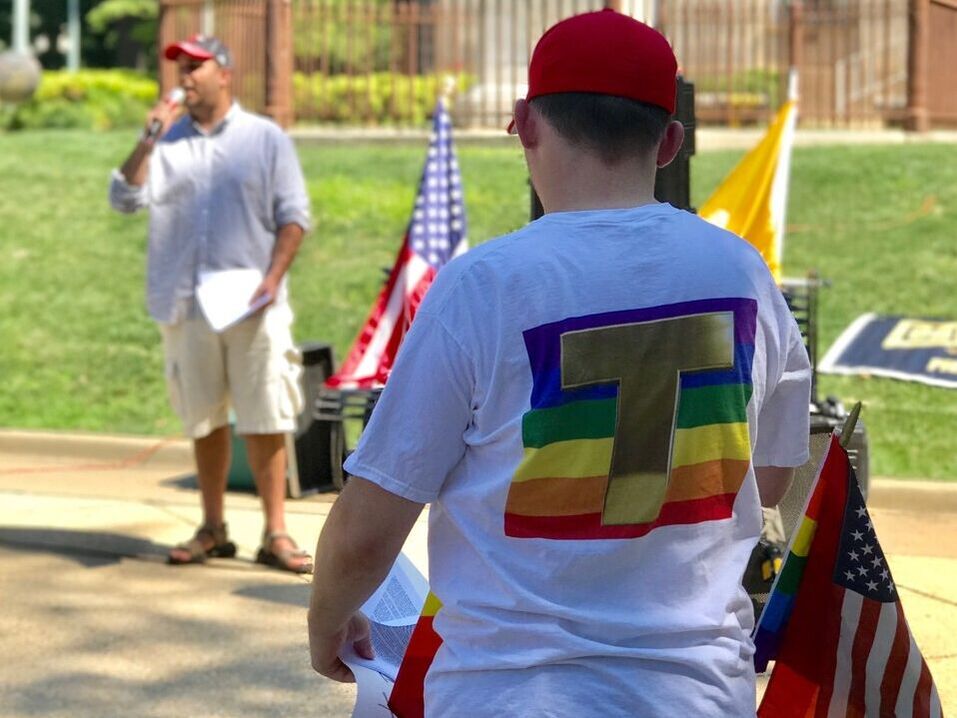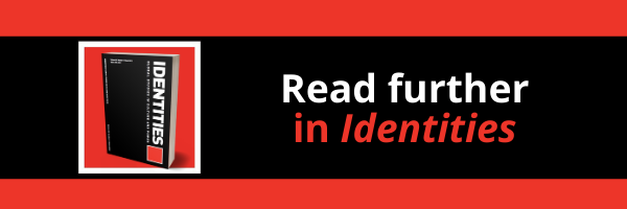|
|
'A radical Islamist terrorist targeted the nightclub (…) in order to execute gay and lesbian citizens, because of their sexual orientation. It’s a strike at the heart and soul of who we are as a nation.'
- Donald Trump
PRR’s LGBT stances The statement from then-Presidential nominee Donald Trump followed the 2016 mass shooting at Pulse, a gay nightclub in Orlando, Florida. Later, in 2020, Trump referred to himself as 'the most pro-gay President in America'. Simultaneously, he appointed overtly anti-LGBT candidates to judicial positions and oversaw various policies legitimizing the exclusion of LGBTQ+ people. Trump’s contradictory attitude towards LGBTQ+ minorities is emblematic of a broader Western trend in populist radical right (PRR) politics: PRR actors often adopt pro-LGBTQ+ stances whilst simultaneously propagating not only heteronormative family values and conservative religious moralities, but actively anti-LGBTQ+ policies.
What about PRR LGBTQ+ citizens?
It is, however, not only the parties and leaders who present seemingly contradictory positions. The existence of communities of people who are both supportive of PRR politics and explicitly LGBTQ+ seems paradoxical given the anti LGBTQ+ stances and history of the PRR. For PRR parties, the counterintuitively contradictory positions have been explained in the literature: LGBTQ+ rights can bolster populism and nativism, positioning gay rights as a part of Western society which is threatened by an invading, violent cultural other. This is regularly coined ‘homonationalism’. Homonationalism, however, describes a top-down process. It does not explain how the identities of pro-PRR LGBTQ+ people function. PRR politics is often still guided by a Christian-oriented moral logic which excludes non-heteronormative subjecthoods, and is oriented towards social conservatism in most Western countries. This would imply a degree of tension in the identities of PRR LGBTQ+ people. If this is the case, how do PRR LGBTQ+ people create a positive identity, and how do they demarcate these seemingly contradictory identities? In our Identities article, ‘Constructing homonationalist identities in relation to religious and LGBTQ+ outgroups: a case study of r/RightWingLGBT’, we interrogate these issues, focusing on the populist, right-leaning Reddit community, ‘r/RightWingLGBT’. Morally degenerative LGBTQ+ citizens We found that PRR LGBTQ+ people consistently distance themselves from the wider LGBTQ+ community. They frame themselves as morally superior, gender conformity and their embrace of ‘natural’ gender (i.e. male or female). 'I despise non binary people, they ruin real transgender issues, they make us appear like a huge joke to most ‘normal folk’ . . . [Non-binary people] are ruining our people, there are two genders, that’s it.'
- r/RightWingLGBT, 2020
The ingroup defines itself as ordinary, moral and natural, whilst emphasizing the unnaturalness, immorality and degeneracy of the outgroup. It is an example of homonationalism: only those who perform heteronormativity are proper LGBT citizens. Covert Christianity Crucially, r/RightWingLGBT users appear to align with the superiority of the in-group with Christian values, whilst not actively adopting a Christian identity. This self-understanding can be understood as a process of normalization. The Christian morality that is at the root of Western society is not recognized as explicitly Christian anymore, but as a normal or natural underlying part of society. Congruently, r/RightWingLGBT users frame the queer, liberal outgroup as deviating from a self-evident, objective morality. 'They make you think that so you stay in the meat grinder of hookup apps, bars, drug culture and degeneracy. But even if you find dates as a lefty, you’re not going to find someone who values monogamy or family.'
- r/RightWingLGBT, 2020
r/RightWingLGBT users also emphasize a perceived threat of Muslims immigrants and Islamic terrorists, who are framed as threatening to LGBTQ+ people. Echoing a homonationalist logic, the ingroup is part of the normal, natural and implicitly Judeo-Christian Western society, and should be protected from invading racialized others. A less colourful rainbow While many PRR parties and supporters wave the rainbow flag, our analysis shows how this inclusion is selective. Moreover, it illustrates how homonationalist dynamics extend beyond top-down processes into the identities of non-political actors. Rather ironically, the LGBTQ+ rainbow flag originally had eight stripes. The two colours (hot pink and turquoise), which were later removed, stood for sex and magic/art, respectively. Poignantly, these non-conformist and overtly ‘sexual’ parts of LGBTQ+ identity are also those which are excluded when such identities become a feature of PRR rhetoric. Similarly, by drawing moral boundaries within the LGBTQ+ community, PRR LGBT citizens can point at the excluded, ‘deviant’ people, bolstering a positive identity for themselves. The normalization of Christianity imbues culture with Christian moralities without acknowledging their religiosity. Thus, PRR LGBTQ+ people can too embrace these moral demarcations without acknowledging they are rooted in a religion which historically rejects or even enacts violence against LGBTQ+ people.
Blog post by Briar Dickey, Niels Spierings and Marijn van Klingeren, Radboud University, the Netherlands
Read the Identities article: Dickey, Briar, Spierings, Niels & van Klingeren, Marijn. Constructing homonationalist identities in relation to religious and LGBTQ+ outgroups: a case study of r/RightWingLGBT. Identities: Global Studies in Culture and Power. DOI: 10.1080/1070289X.2022.2054568 OPEN ACCESS
Explore other relevant Identities articles:
Transnational ways of belonging and queer ways of being. Exploring transnationalism through the trajectories of the rainbow flag Hijack or release? On the heuristic limits of the frame of instrumentalization of religion for discussing the entanglements of populism, religion, and gender Homosexuality, society, and the state: An ethnography of sublime resistance in Martinique
0 Comments
Your comment will be posted after it is approved.
Leave a Reply. |
|
Explore Identities at tandfonline.com/GIDE |
|
The views and opinions expressed on The Identities Blog are solely those of the original blog post authors, and not of the journal, Taylor & Francis Group or the University of Glasgow.


